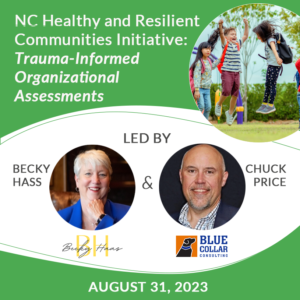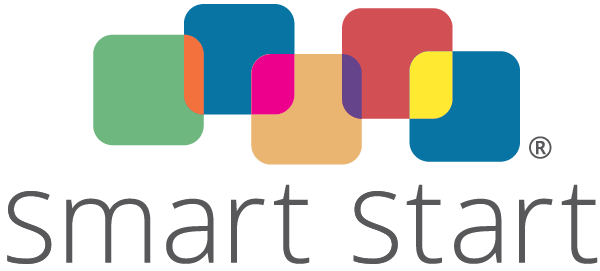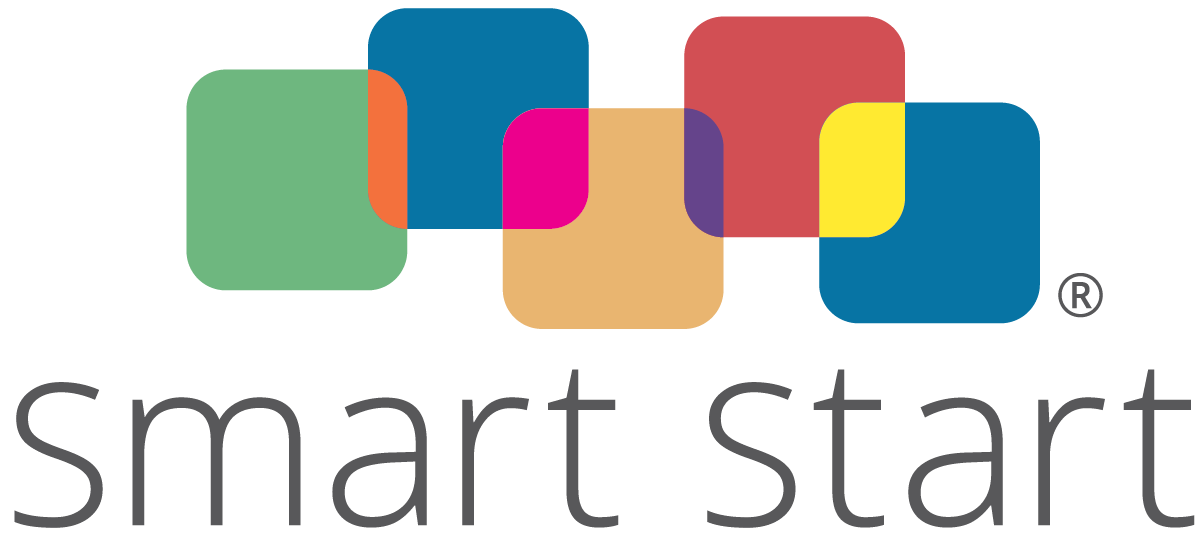Join Smart Start for a Trauma-Informed Training
The NC Healthy & Resilient Communities Initiative Offers A Trauma Informed Organizational Assessment Training
Trauma can have a significant impact—effecting each of us, those that we work with, and organizations we work within. Transforming this awareness into practical action and knowing the necessary steps to create healing-oriented environments within our organizations, while also avoiding re-traumatization is critical.
In June, the North Carolina Partnership for Children hosted Chuck Price and Becky Haas, national subject matter experts in trauma-informed care, for a comprehensive two-day training on trauma-informed organizational assessments. Teams from nine resilience training grant communities (Brunswick/Pender, Caldwell, Dare, Durham, Lee, New Hanover, Robeson, and Wilkes) actively participated in the training, gaining valuable insights and practical knowledge to enhance their approach to trauma-informed care. Moving forward, these communities will receive ongoing coaching from the trainers until January 2024, as they implement the assessments and develop action plans for the organizations involved.
Fortunately, communities who are not part of this grant opportunity will also have a chance to learn from these excellent trainers and gain transformative knowledge about what it means to embark on an organizational journey towards moving from “trauma aware” to “trauma competent.”
NC Healthy & Resilient Communities Initiative Offers Virtual Training on Trauma-Informed Care
Join the NC Healthy & Resilient Communities Initiative on Thursday, August 31, 2023 for an informative and interactive webinar on trauma informed care. This virtual training is open to ALL North Carolinians residents.
residents.
The Trauma Informed Organizational Assessments Training offers a 4-hour high-level overview of trauma informed care implementation and organizational assessments. It aims to help participants progress from trauma-aware to trauma-competent states. The training will provide practical tools to assess organizations through a trauma-informed lens and develop action plans for creating secure and inclusive environments.
During the training, presenters will focus on cross-sector inclusion in community coalition building, sharing trauma-informed practices in various fields and practical tools for sustainable change. Participants will also network and share their experiences.
Participants will:
- Learn some best practices for creating trauma informed resilient communities
- Help move organizations from trauma-aware to trauma-competent
- Gain knowledge on how to use organizational assessments and other tools to move community organizations from trauma-aware to trauma-competent
- Develop cross-sector collaborations and partnerships
Register now for the Trauma-Informed Organizational Assessment Training!
Understanding Trauma-Informed Organizational Assessments:
Trauma-informed organizational assessments have emerged as a critical tool to create supportive environments, promote healing, and create lasting resilience.
Trauma-informed organizational assessments go beyond traditional performance evaluations or audits. They provide a comprehensive and holistic view of an organization’s culture, practices, policies, and interactions. These assessments are conducted through the lens of trauma-informed care, which recognizes the prevalence of trauma and its potential impact on both individuals and communities.
The Power of Trauma-Informed Care:
At the heart of trauma-informed organizational assessments lies the power of trauma-informed care itself. It is not a mere checklist of actions to be ticked off; rather, it represents a fundamental paradigm shift in how organizations approach their mission.
“Trauma Informed practice is not a checklist type of practice – my constant reminder to folks and organizations is that ‘It’s not a thing you do, it’s how you do your thing’” – Chuck Price
Trauma-informed care emphasizes safety, trust, collaboration, empowerment, and resilience. For early childhood organizations like Smart Start, trauma-informed care principles can help support the unique needs of young children, setting them on a path of healthy development.
If you’re interested in receiving critical skills on trauma-informed care, join NCPC, the Smart Start Network, and the Healthy & Resilient Communities Initiative for a trauma-informed training on August 31. Learn more here.


